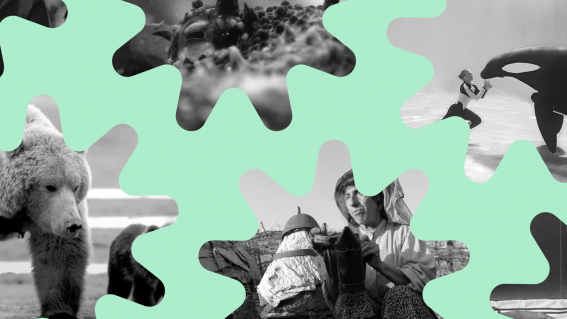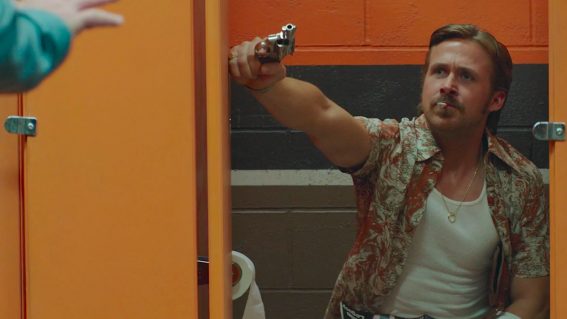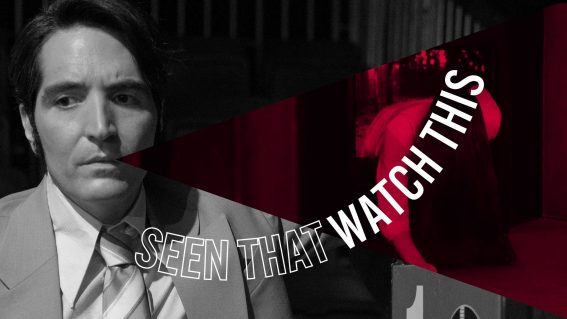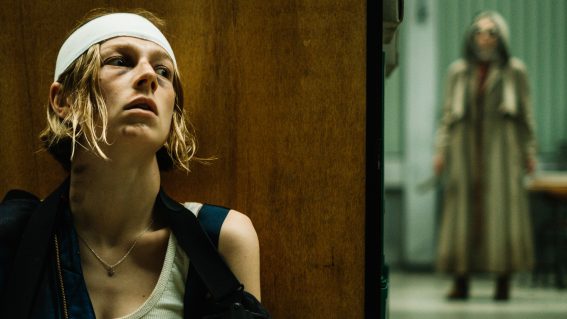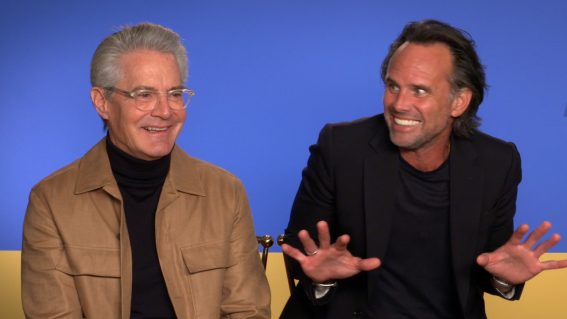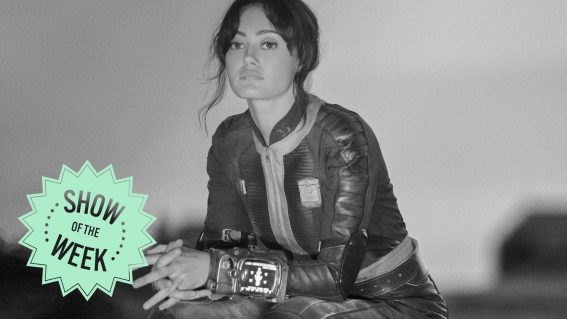Interview: ‘The Bélier Family’ Director Eric Lartigau
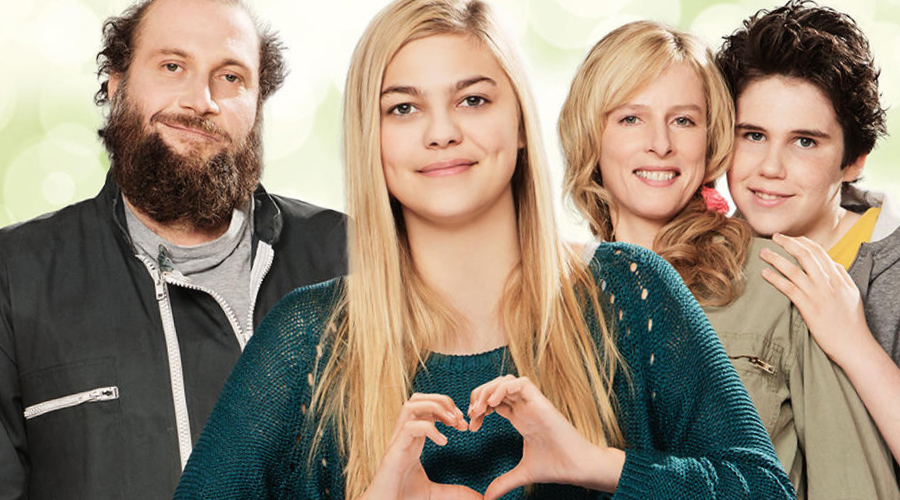

One of France’s biggest sleeper hits of the last year, unlikely crowd-pleaser The Bélier Family is hitting Kiwi theatres on Boxing Day as a continental alternative to the holiday blockbusters.
The heartfelt, musically-inclined dramedy focuses on Paula (played with superlative cinematic radiance by newly minted French star Louane Emera, who won a César for the role), a wry teenager who acts as translator for her mother, father and younger brother, all of whom are deaf/mute.
Paula is happy to perform the responsibilities that come with being the only hearing person in her family, but when her considerable talents as a singer begin to emerge and a scholarship in Paris looms, the familial bonds are challenged.
Although it results in some awkward humour at times, The Bélier Family strives to present a portrayal of deaf people that is brasher and more intimate that the solemn distance with which most films regard the deaf community.
Co-writer/director Eric Lartigau sat down with Dominic Corry and a translator to discuss the film in a Paris hotel room.
FLICKS: What was it that made you want to tell this story?
ERIC LARTIGAU: The starting point was a young scriptwriter who was inspired by her father’s assistant who was the only hearing person in a family of deaf/mute people. At the same time she was taking singing lessons, so she decided to mix both music and deaf people. After she wrote a first version about these people, I took the script myself and re-wrote it over six months with another co-writer who came to join me at the end. I wanted to have the point of view of the parents as much as that of the young girl, to see how you let yourself discover a gift – what it means to be gifted. It’s a discovery – an organ in your body, which paradoxically is the only one of the arts which won’t be heard by her parents. So there’s a sort of extra treachery – not only must she leave the house, but she has a gift to which her parents do not have access.
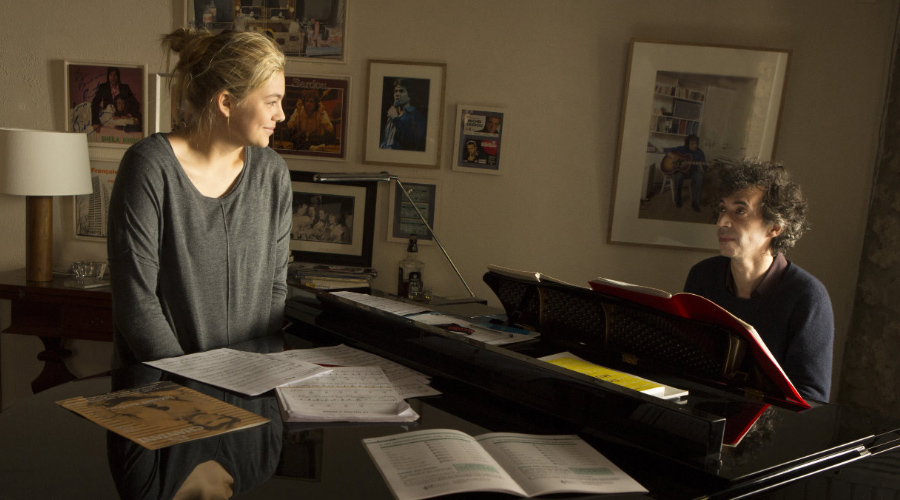
Did you feel comfortable presenting the perspective of deaf people?
Yes. I was comfortable with it because I’m interested in differences. And we have a tendency to put differences in categories, to put them in reassuring boxes. It really cuts you away. So when you come a littler nearer or closer to a “different” community, then you realise they’re just like you and me. They have the same worries, the same fears, and the same joys. In New Zealand, you have this language which is English and you also have another language – sign-language. And the two worlds, even though you live in the same country, the two communities never seem to meet, or very rarely. There was an intention to make a bridge or a sort of connection between the two communities.
What was your experience with deafness before this film?
I have a little bit of my own experience – one of my cousins was deaf. We spent our childhood together, so I saw the difficulties she had expressing herself to others. And at the time she had a hearing aid which was, at the time, 30 or 40 years ago, they were not precise, it was uncomfortable, it was bothersome so she removed in constantly. And as children we communicated anyway, we played together, we had a lot of pleasure. We got into fights and everything. And as we grew up, we noticed that you move away from this natural communication you have as a child and it’s a pity to break this connection, this link.
That’s kind of the link Paula has with her family in the film.
Yes, in fact she is also building a bridge between society and family. Without her, communication cannot exist because the parents have really counted on her to be their translator since the younger brother is also deaf. She has to call the bank, everything. She has the role of adult and teenager at the same time.
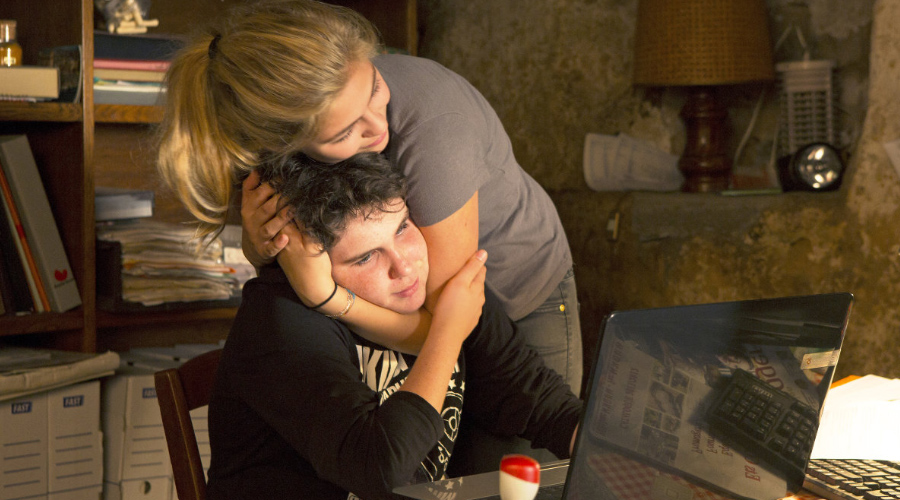
Louane Emera gives an amazing debut performance as Paula – where’d you find her?
I watched a show you might know called The Voice. I had seen 80 young girls before, who were selected for casting. And the best one had the worst voice unfortunately. At first I thought, “Okay we’re gonna put a voice over her, we’re gonna cheat”. Because the actress was really great. And then quickly I thought “No this is not a musical comedy”. We were trying for reality so I needed her body as a director, to have the emotion of her voice directly. And just by a chance a friend told me to take a look at The Voice. And that night I watched without really believing. And I fell in love with [Louane].
Were you ever concerned about the subject matter appealing to a wide audience?
Not really, because for me, the fact that they are deaf and mute, it’s just a pretext for the story. The barrier needed not to be something heavy, because it’s a comedy. The rhythm had to be very precise. It was complicated between the sign language and the translation, during the writing it was very difficult to find this balance. But I thought it was a universal subject, the family. And to be able to watch, to observe people It was more interesting to watch through this lens, because in France, what’s curious, even for people who know Karin Viard and François Damiens [who are both well-known stars] say they’re surprised not to hear them, but that it doesn’t really bother them because they express themselves in a different way and there’s a curiosity.
Did you ever consider casting deaf actors as the parents?
No. Each time that I work on a script, I always have actors in mind. Karin and François immediately came to mind. And it’s also a job to be an actor and you’ve seen Forrest Gump – Tom Hanks is not slow in real life. And Tom Cruise in Top Gun is not a fighter pilot.
Damiens and Viard are both very convincing in the film.
We worked with a teacher who was a deaf person and we worked enormously. They worked for six months before knowing the sign language so it was very laborious difficult work, on a daily basis for four hours and day and afterwards, all the characteristics of the people. There’s a certain music in sign language. I really wanted the signs to be perfect, firstly out of respect for the community, and also for the actors to be freed from the signs themselves and be able to work on the performance.
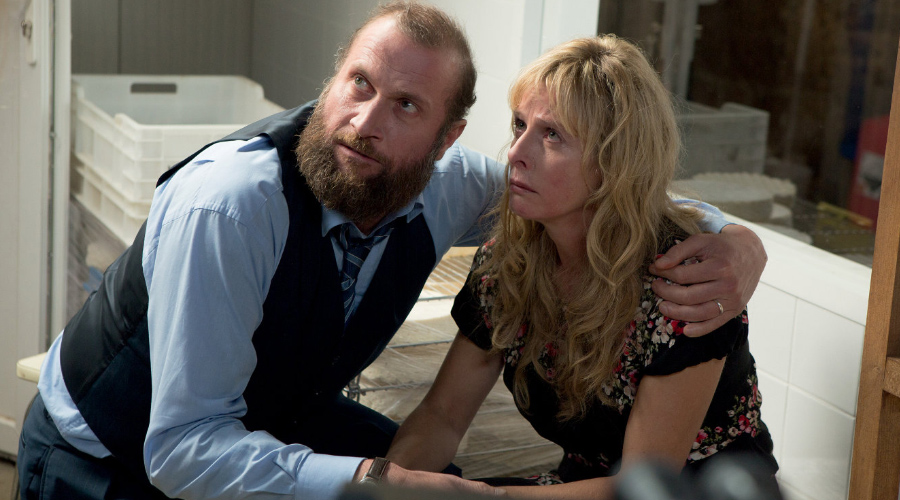
It’s an interesting moment in the film when Karin Viard’s character says she hates people who can hear.
When Alexei, the teacher who is deaf, read this, and the translator aswell, who has been working with deaf people for ten years, they both said “Wow, this is so violent, are you sure you want to keep this?” And I said “Yes of course”. They said it’s the truth. It’s absolutely the truth. There are some deaf people who cannot stand hearing people. There’s a whole extreme community inside the deaf community of people who hate people who hear. They think that they are not respected, as such, that there’s nothing that’s made for them in society.
Have you screened the film to deaf audiences?
I’m touring right now in France, we went through forty cities, five at which we had special screenings for deaf people. The reactions were surprising. 98% of them said “Thank you for this window into our world, to show that we’re just like you. We’re usually stigmatised.” And the two remaining percent of people said it was a pity the actors were not deaf. But once again, it was not a documentary film on deaf people, it was the story of a family.
One of the funniest parts of the film is how Paula casually swears at her parents because they can’t hear her.
It was something the assistant who inspired the first script had said. She was always saying “Ciao, motherf-ckers” [to her parents]. Why not?
The Bélier Family opens Boxing Day. Click here for more info and movie times

